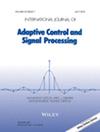基于强化学习的离散时间系统数据驱动干扰补偿控制
IF 3.9
4区 计算机科学
Q2 AUTOMATION & CONTROL SYSTEMS
International Journal of Adaptive Control and Signal Processing
Pub Date : 2024-03-22
DOI:10.1002/acs.3793
引用次数: 0
摘要
摘要本文提出了一种自学习干扰补偿控制方法,使未知离散时间(DT)系统在存在干扰的情况下实现性能优化。与传统的基于模型和数据驱动的状态反馈控制方法不同,所开发的非策略 Q-learning 算法通过主动与未知环境交互来更新状态反馈控制器参数和补偿器参数,因此只需使用数据即可实现近似最优跟踪。首先,提出了带扰动的线性 DT 系统的最优跟踪问题。然后,通过求解一个零和博弈问题来实现控制器的设计,从而得出一种仅有批判结构的非策略干扰补偿 Q-learning 算法,该算法利用数据更新干扰补偿控制器增益,而无需了解系统动态。最后,通过仿真验证了所提方法的有效性。本文章由计算机程序翻译,如有差异,请以英文原文为准。
Data‐driven disturbance compensation control for discrete‐time systems based on reinforcement learning
SummaryIn this article, a self‐learning disturbance compensation control method is developed, which enables the unknown discrete‐time (DT) systems to achieve performance optimization in the presence of disturbances. Different from traditional model‐based and data‐driven state feedback control methods, the developed off‐policy Q‐learning algorithm updates the state feedback controller parameters and the compensator parameters by actively interacting with the unknown environment, thus the approximately optimal tracking can be realized using only data. First, an optimal tracking problem for a linear DT system with disturbance is formulated. Then, the design for controller is achieved by solving a zero‐sum game problem, leading to an off‐policy disturbance compensation Q‐learning algorithm with only a critic structure, which uses data to update disturbance compensation controller gains, without the knowledge of system dynamics. Finally, the effectiveness of the proposed method is verified by simulations.
求助全文
通过发布文献求助,成功后即可免费获取论文全文。
去求助
来源期刊
CiteScore
5.30
自引率
16.10%
发文量
163
审稿时长
5 months
期刊介绍:
The International Journal of Adaptive Control and Signal Processing is concerned with the design, synthesis and application of estimators or controllers where adaptive features are needed to cope with uncertainties.Papers on signal processing should also have some relevance to adaptive systems. The journal focus is on model based control design approaches rather than heuristic or rule based control design methods. All papers will be expected to include significant novel material.
Both the theory and application of adaptive systems and system identification are areas of interest. Papers on applications can include problems in the implementation of algorithms for real time signal processing and control. The stability, convergence, robustness and numerical aspects of adaptive algorithms are also suitable topics. The related subjects of controller tuning, filtering, networks and switching theory are also of interest. Principal areas to be addressed include:
Auto-Tuning, Self-Tuning and Model Reference Adaptive Controllers
Nonlinear, Robust and Intelligent Adaptive Controllers
Linear and Nonlinear Multivariable System Identification and Estimation
Identification of Linear Parameter Varying, Distributed and Hybrid Systems
Multiple Model Adaptive Control
Adaptive Signal processing Theory and Algorithms
Adaptation in Multi-Agent Systems
Condition Monitoring Systems
Fault Detection and Isolation Methods
Fault Detection and Isolation Methods
Fault-Tolerant Control (system supervision and diagnosis)
Learning Systems and Adaptive Modelling
Real Time Algorithms for Adaptive Signal Processing and Control
Adaptive Signal Processing and Control Applications
Adaptive Cloud Architectures and Networking
Adaptive Mechanisms for Internet of Things
Adaptive Sliding Mode Control.

 求助内容:
求助内容: 应助结果提醒方式:
应助结果提醒方式:


